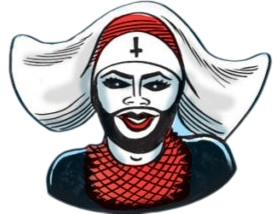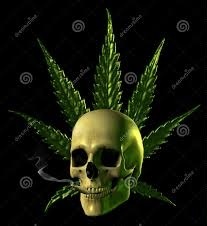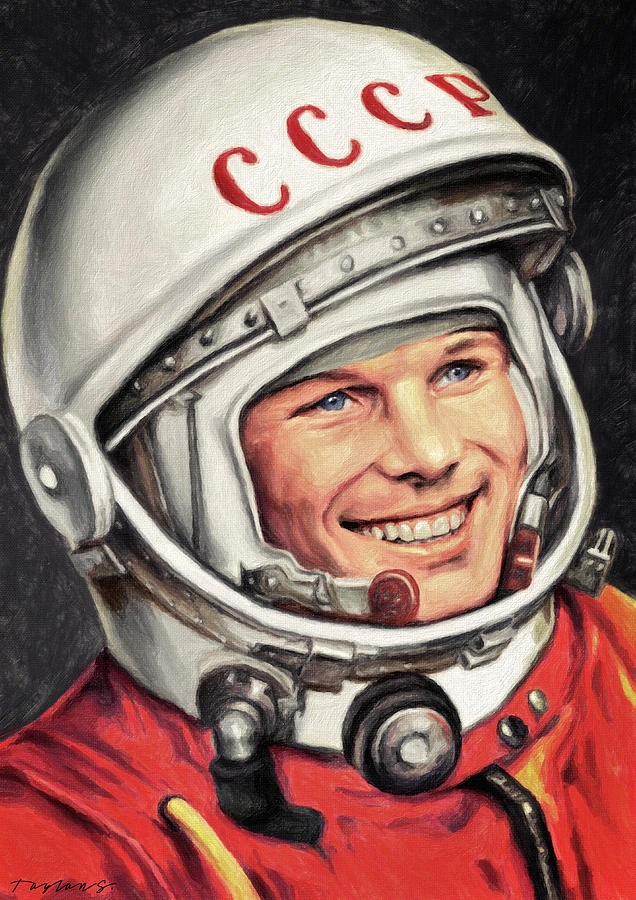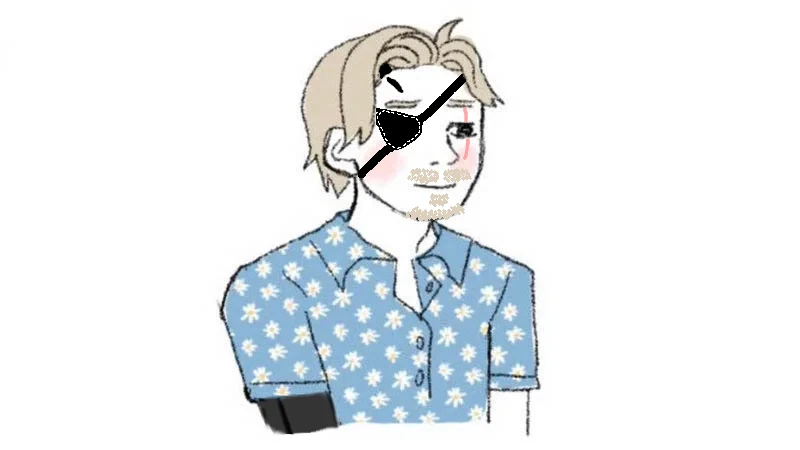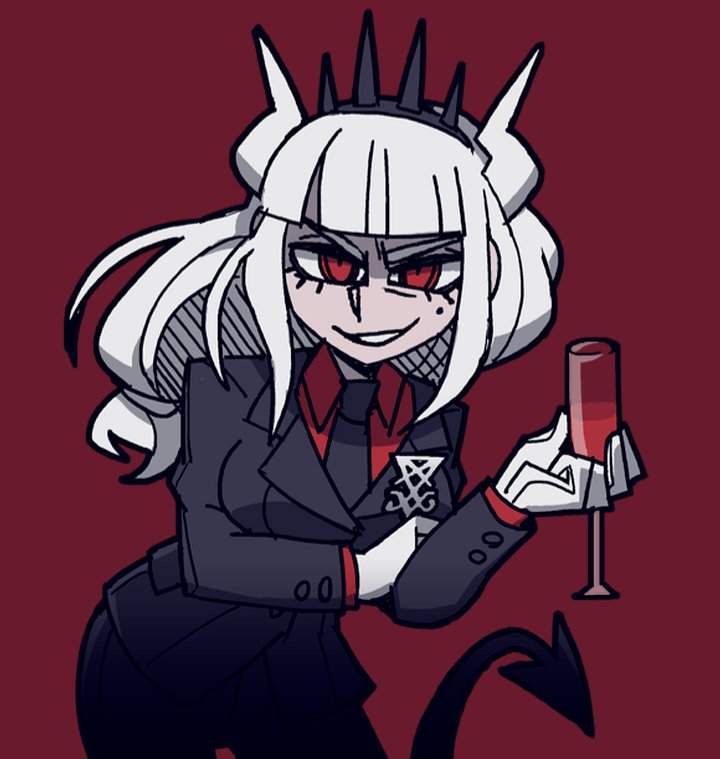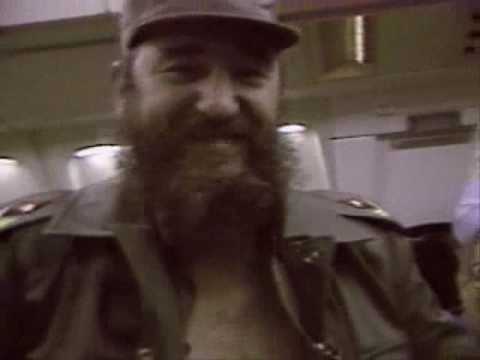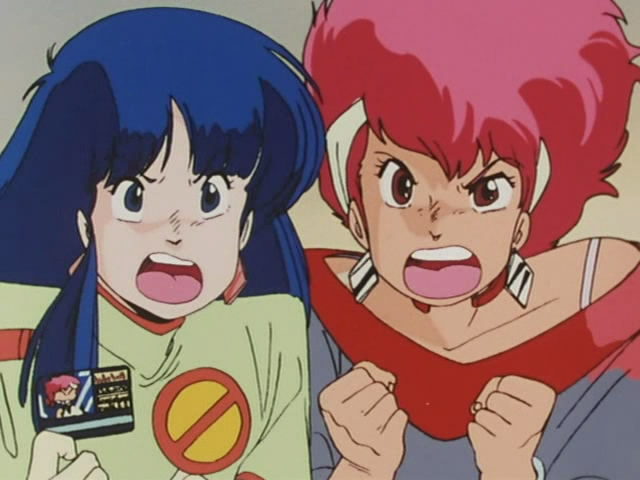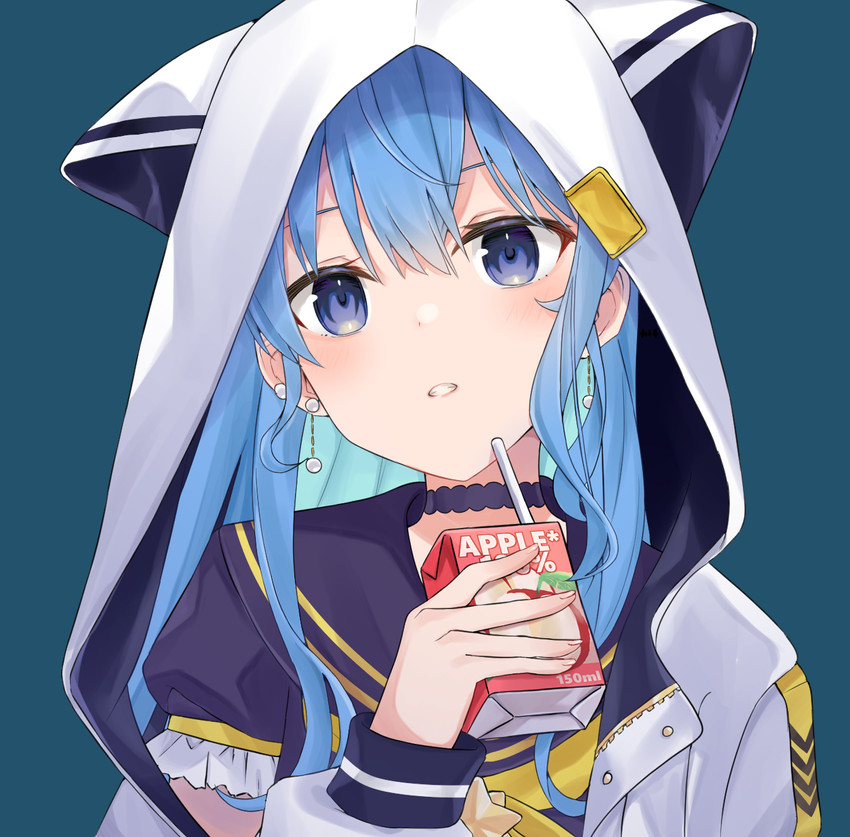This is what happens when you ingest ONE (1) soy you get a weak chin.
He's been rushed to a secret FSB looksmaxing facility in the Urals
https://www.theglobeandmail.com/news/world/ruthless-butcher-or-benign-great-grandpapa-joe/article17978601/
I like that he is/was (in 2008) an outright Stalinist:
spoiler
The burden followed him abroad, to art school in Scotland, where he hid his identity to all but his closest friends. Now, he wears his family lineage with pride.
Stalin, he has concluded after years of reading, was not the murderous villain who killed millions of opponents including intellectuals, peasants, and artists like him. Mr. Jugashvili said his great-grandfather was one of civilization's great leaders.
"Did Stalin kill millions? No. Absolutely not. That's bullshit," he said in an interview at a café atop a Tbilisi hillside.
Mr. Jugashvili's ferocious defence of Stalin's legacy seems out of context in this small mountainous country, which is trying to carve a democratic tradition out of the ruins of the former Soviet Union.
It appears doubly out of character coming from this soft-spoken artist who was earlier peering intently at the artwork on the café walls, commenting that he too would like to display his paintings here.
Unlike many other Georgians of his generation, Mr. Jugashvili is still mourning the death of communism and the collapse of the Soviet Union.
"It was the most unique, most successful, event in the history of mankind, at least in written history," Mr. Jugashvili said, his eyes flashing with conviction.
"What we did in a short period of 50 or 60 years - we've done what the Western world like England, France and Netherlands, they needed 150 years. Why? Because the Soviet Union knew the full potential of the whole society."
He goes on to rail about Western capitalism, democracy, NATO and even the concept of elections, which he says are wrong-minded because most of the population is ill informed.
While Mr. Jugashvili's views are out of step with the current line on Stalin's ruthless legacy, his thinking isn't unique in this part of the world.
After Stalin's death in 1953, his mythic status began to crumble when his successor, Nikita Khrushchev, denounced his "cult of personality" and purges. But today, in Russia, Stalin's reputation has been partly restored under Russian President Vladimir Putin. Even in Georgia, his legacy is mixed.
At Stalin's birthplace in Gori, an hour's drive north of Tbilisi, some older villagers still refer to him as "Papa Joe." His personal artifacts are preserved in a small museum.
The museum's director, Mzija Naochashvili, said Stalin was indeed a dictator, but that is not necessarily a criticism. Only a dictator, she said, could "run such a country. Nobody can name me any other great country without a dictatorship."
As for his victims? "Yes there were some mistakes, even crucial mistakes, but the USSR was the first "state in the world since the first days of humanity," Ms. Naochashvili said. "Only these mistakes let the USSR beat the fascists."
Mr. Jugashvili agrees.
Do you have an archive link? I can't access that article wihtout an account
Nvm I just went and used the wayback machine.
https://web.archive.org/web/20210301163531/https://www.theglobeandmail.com/news/world/ruthless-butcher-or-benign-great-grandpapa-joe/article17978601/
If anyone is interested
Weird, it only gave me one of those soft paywalls that you can click out of. Here's the full article:
spoiler
At first glance, the family resemblance is unmistakable. Jacob Jugashvili has the same short frame and barrel-chested build of his great-grandfather, Iosif Vissarionovich Dzhugashvili, a.k.a. Joseph Stalin, the iron-fisted dictator who ruled the Soviet Union for 31 years.
But the similarities end there.
Mr. Jugashvili's pale blue eyes are friendly and inquisitive; his personality disarmingly humble. Steering his red jeep through Tbilisi's narrow, snow-covered streets in a bulky, plaid lumberjack shirt, Mr. Jugashvili could pass for a backwoods B.C. camper.
He's a struggling artist in a poor nation that was once the jewel in the former empire created by his infamous ancestor. His modest ambitions are light years from the grand designs Stalin envisaged for a workers' paradise that would stretch from Asia to Eastern Europe and beyond.
Now 35, Mr. Jugashvili doesn't remember a time when he wasn't asked about his family background. Once the source of pride during the Soviet era, his family tree became a shame during his teenage years when the Soviet Union crumbled and the full scope of Stalin's tyranny came to light.
The burden followed him abroad, to art school in Scotland, where he hid his identity to all but his closest friends. Now, he wears his family lineage with pride.
Stalin, he has concluded after years of reading, was not the murderous villain who killed millions of opponents including intellectuals, peasants, and artists like him. Mr. Jugashvili said his great-grandfather was one of civilization's great leaders.
"Did Stalin kill millions? No. Absolutely not. That's bullshit," he said in an interview at a café atop a Tbilisi hillside.
Mr. Jugashvili's ferocious defence of Stalin's legacy seems out of context in this small mountainous country, which is trying to carve a democratic tradition out of the ruins of the former Soviet Union.
It appears doubly out of character coming from this soft-spoken artist who was earlier peering intently at the artwork on the café walls, commenting that he too would like to display his paintings here.
Unlike many other Georgians of his generation, Mr. Jugashvili is still mourning the death of communism and the collapse of the Soviet Union.
"It was the most unique, most successful, event in the history of mankind, at least in written history," Mr. Jugashvili said, his eyes flashing with conviction.
"What we did in a short period of 50 or 60 years - we've done what the Western world like England, France and Netherlands, they needed 150 years. Why? Because the Soviet Union knew the full potential of the whole society."
He goes on to rail about Western capitalism, democracy, NATO and even the concept of elections, which he says are wrong-minded because most of the population is ill informed.
While Mr. Jugashvili's views are out of step with the current line on Stalin's ruthless legacy, his thinking isn't unique in this part of the world.
After Stalin's death in 1953, his mythic status began to crumble when his successor, Nikita Khrushchev, denounced his "cult of personality" and purges. But today, in Russia, Stalin's reputation has been partly restored under Russian President Vladimir Putin. Even in Georgia, his legacy is mixed.
At Stalin's birthplace in Gori, an hour's drive north of Tbilisi, some older villagers still refer to him as "Papa Joe." His personal artifacts are preserved in a small museum.
The museum's director, Mzija Naochashvili, said Stalin was indeed a dictator, but that is not necessarily a criticism. Only a dictator, she said, could "run such a country. Nobody can name me any other great country without a dictatorship."
As for his victims? "Yes there were some mistakes, even crucial mistakes, but the USSR was the first "state in the world since the first days of humanity," Ms. Naochashvili said. "Only these mistakes let the USSR beat the fascists."
Mr. Jugashvili agrees.
Stalin created a powerful, modern state and military machine that helped win the Second World War, he said. His cruel methods - deporting, jailing and executing opponents - were necessary, he added.
"Have you been to Leningrad?" he asks, referring to what is now known as St. Petersburg, a port city built by Peter the Great using peasant labour. "Do you feel comfortable walking on the streets of Leningrad, knowing that you're walking on bones of people? Because Leningrad was built on the bones of millions of peasants."
It's clear Mr. Jugashvili has been asked questions about Stalin's legacy dozens of times. His defensiveness he said, is due in part to the repetition, but also because they're often posed by people who come from "another world."
Later, at his tiny art studio in downtown Tbilisi, Mr. Jugashvili's manner relaxes when talk turns to art and his life in Georgia.
Mr. Jugashvili was born in Tbilisi. His direct family line to Stalin can be traced to the former leader's first marriage to Ekaterina Svanidze. She died in 1907 but the couple had one son, Jacob Jugashvili. He died in a Nazi prison camp during the Second World War after the dictator refused to swap him for a captured German officer.
Jacob's son Yevgeny was raised in Russia and became a Red Army colonel. On one of his many trips to his grandfather's homeland, he married a Georgian woman and they had two sons, Jacob and Vissarion.
Mr. Jugashvili's early years were in Tbilisi, but the family moved to Moscow when he was a teenager.
In 1989, Mikhail Gorbachev, the last Soviet leader, unleashed an era of openness and reforms that would lead to the dissolution of the Soviet Union and the end of communism.
Mr. Jugashvili, a 17-year-old high-school student at the time, watched the changes with a growing sense of disquiet. "I would pick up the papers and there would be a headline, Jugashvili Was A Killer.
He felt his ancestry and the country he loved were under attack. "I had a feeling that bad things were happening."
He returned to Georgia and enrolled in a Tbilisi art academy then went abroad to the Glasgow School of Art. The culture shock nearly overwhelmed him.
He eventually returned to Georgia, worked briefly for a computer company, then went back to painting. Today, Mr. Jugashvili sells two or three pieces a year, not enough to live on. He and his wife pay the bills with rental income from an apartment they own.
For years, Mr. Jugashvili struggled with whether to pursue painting or a more lucrative career. "I decided I will paint because if you work at a job, you don't have the time for art. Art is a job. When I'm 50 I want to be able to say I created this."
His paintings are modernist visions of fish, birds and human forms, mixed in swirls of purple and orange.
The day after the interview, Mr. Jugashvili makes an apologetic telephone call. Displaying typical Georgian hospitality, he is worried that he offended a visiting guest. He apologizes if he seemed rude, but his views don't waiver.
This is an artist who counts Ivan the Terrible as one of his heroes.
"He said the head of the state must not only govern the people but also save their souls. That's our mentality. That's the world I come from. And that's absolutely true."
MAN OF STEEL
Iosif Vissarionovich Dzhugashvili was born on Dec. 18, 1879, in Gori, Georgia, then part of the Russian empire. His father was a cobbler and Stalin grew up in modest circumstances. He devoted his time to the revolutionary movement against the Russian monarchy and adopted the name Stalin, which means "man of steel," while still young.
In 1922 Stalin became general secretary of the Communist Party, a post that allowed him to build up a power base. By the late 1920s, he was effectively dictator of the Soviet Union.
His forced collectivization of agriculture cost millions of lives and the population suffered immensely during the Great Terror of the 1930s, when he purged the party of "enemies of the people."
He died of a stroke in 1953.
He and his wife pay the bills with rental income from an apartment they own.
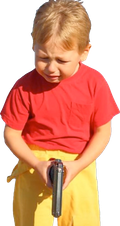
Feel like shit, just wanna go back to the 1930s and tell them Stalin's great-grandson will be a kulak in the ruins of the Soviet Union unless they kill this one guy named Khrushchev who isn't important.
Ruthless butcher or benign great-grandpapa Joe?
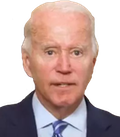
Oh, they're talking about Stalin, never mind.
I thought Stalin's only living descendant was that weird punk goth girl in Portland who was somehow also a huge MAGA-fan
nah he has a lot of very reactionary great grandsons
I found a YouTube link in your comment. Here are links to the same video on alternative frontends that protect your privacy:
When the incels stop mewing for three and a half weeks
This makes me miss the Weekly World News papers they used to have at checkouts at the grocery store. I'm sure there are a lot of really problematic stories if I looked back, but the couple that I remember were things like "worlds fattest cat saves Christmas" or "Helsinki is sinking into the core of the Earth".
The mileage they got out of "Bat Boy"..
Helsinki is sinking into the core of the Earth
Full support for comrade core of the Earth.
I miss the days sensational conspiracy "news" was about UFOs and Batboy.
I found a YouTube link in your comment. Here are links to the same video on alternative frontends that protect your privacy:
Biden has also been dead for years but they haven't even bothered to find a body double, the US just has a literal rotting corpse as its head of state


